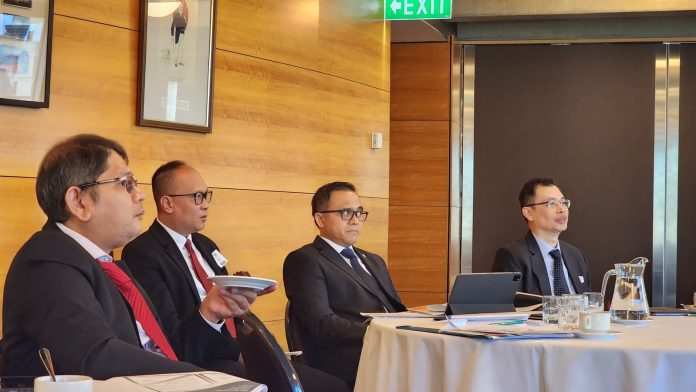WELLINGTON – On the second day of his working visit to New Zealand, Minister of Administrative and Bureaucratic Reform (PANRB) Abdullah Azwar Anas visited the Department of Prime Minister and Cabinet (DPMC) New Zealand.
There, he exchanged ideas with the DPMC regarding the process and methods of formulating and evaluating policies issued by the New Zealand Government.
“During the visit to DPMC, we learnt about the public policy process and how to monitor policy strategies in various ministries and institutions in New Zealand,” explained Minister Anas after a meeting with DPMC in Wellington, New Zealand, Tuesday (6/8).
The Ministry of PANRB delegation and DPMC, he continued, also discussed the role of technology and digitalisation in bureaucratic reform in improving efficiency and transparency in New Zealand. In addition, the challenges faced during the reform process were also discussed.
On this occasion, DPMC explained the duties and functions of The Policy Project in providing advice on public policy to the cabinet. In addition, it also explained the framework of the policies issued by the cabinet.
The DPMC also conducts capacity assessments to ensure that the advice given to the prime minister on policies is of high quality. This is intended in order to make sure that the policies issued are high quality public policies.
“We also discussed how the Indonesian Government can adopt the framework used by the New Zealand Government to improve the quality of policies and improve the quality of performance of government agencies,” said Minister Anas.
Minister Anas also had the opportunity to talk about bureaucratic reform and digitalisation carried out by the Indonesian Government. One of the focuses of the Ministry of PANRB is the transformation of governance and focus on digital bureaucracy, digital culture, and digital competency.
This is in accordance with President Joko Widodo’s directives regarding bureaucratic reform, namely that bureaucracy must have an impact, it is not a pile of paper, it must be fast and agile, and it must be supported by data-based digitalisation. The Indonesian government is now also issuing thematic bureaucratic reforms.
Deputy Chief Executive of the Policy Advisory Group Janine Smith said that the visit of the Ministry of PANRB delegation to DPMC provided an opportunity to learn about the public policy process in both countries.
“This opportunity is a momentum to learn from each other to improve the quality of policies in New Zealand and Indonesia,” she said.
Meanwhile, The Policy Project’s Principal Advisor Helen Lockyer said this opportunity could continue.
“Today’s discussion can be continued in the future to improve and enhance the quality and capability of policies for New Zealand and Indonesia,” she concluded.




